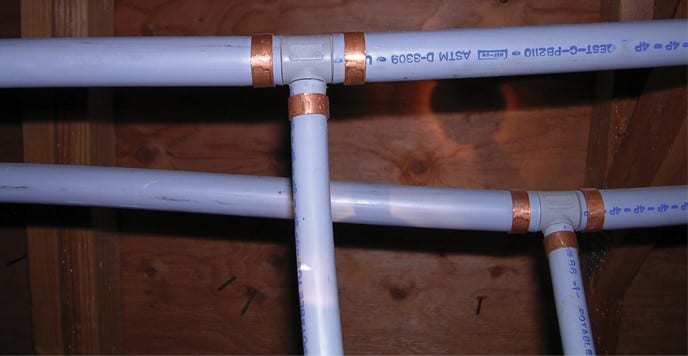Knowing the Material Used in Home Plumbing Pipes
by siteadmin

When it comes to plumbing, homeowners often find themselves in a dilemma when trying to choose the right pipes for their homes. There are various materials used in plumbing pipes, and each has its advantages and disadvantages. Understandably, homeowners are often overwhelmed and unsure about which material to choose. This blog post aims to shed light on the different materials used in plumbing pipes to help homeowners make informed decisions. Each of these has its own unique advantages and disadvantages that must be taken into consideration. Understanding the pros and cons of each material can help homeowners make an informed decision when selecting the ideal pipe for their particular needs.
1. Copper Pipes
Copper pipes are the most popular type of pipes used in residential plumbing. They have been around for decades and are known for their durability and longevity. Copper pipes are corrosion-resistant, which means that they do not rust or corrode. They are also resistant to high-temperature changes, making them ideal for both hot and cold water supply. The only downside to copper pipes is that they are relatively expensive.
2. PEX Pipes
PEX pipes are becoming increasingly popular due to their flexibility and ease of installation. They are made of a cross-linked polymer that makes them resistant to corrosion and temperature changes. PEX pipes are also affordable compared to other types of pipes. However, it is important to note that PEX pipes are still relatively new in the market, and their long-term durability is yet to be fully established.
3. PVC Pipes
PVC pipes are commonly used in drain, waste, and vent (DWV) systems. They are made of a plastic material that is resistant to corrosion and chemicals. PVC pipes are cost-effective and easy to install, making them a popular choice for homeowners. However, they are not suitable for hot water supply as they cannot withstand high temperatures.
4. Galvanized Steel Pipes
Galvanized steel pipes are known for their strength and durability. They are coated with a layer of zinc, which makes them corrosion-resistant. However, they are gradually being phased out due to their tendency to accumulate sediment and rust on the inside. This eventually leads to blockages and reduced water flow.
5. Cast Iron Pipes
Cast iron pipes are commonly used for DWV systems. They are known for their strength and durability, making them ideal for large-scale plumbing projects. They are also resistant to fire, which makes them a popular choice for commercial buildings. However, they are expensive and difficult to install.
In conclusion, choosing the right pipes for your home is a crucial decision that requires careful consideration. The different types of pipes available in the market have their advantages and disadvantages. Homeowners should consider factors such as durability, cost, ease of installation, and suitability for hot or cold water supply before making a decision. It is also important to seek the services of a professional plumber to ensure that the installation is done correctly. With this information, homeowners can make informed decisions and ensure the longevity and durability of their plumbing systems.
https://www.plumbersthornton.com/
When it comes to plumbing, homeowners often find themselves in a dilemma when trying to choose the right pipes for their homes. There are various materials used in plumbing pipes, and each has its advantages and disadvantages. Understandably, homeowners are often overwhelmed and unsure about which material to choose. This blog post aims to shed…
Recent Posts
- Cutting-Edge Lip Filler Treatments in San Diego
- Cutting-Edge Lip Filler Treatments in San Diego
- Lawn Care Spring Branch Advocates for Property Care: Combatting Weed Growth and Preserving Curb Appeal
- Expert Cleaners Lexington Shares Essential Tips for Properly Cleaning Hardwood Floors
- Expert Cleaners Lexington Shares Essential Tips for Properly Cleaning Hardwood Floors
